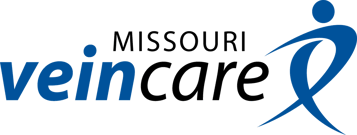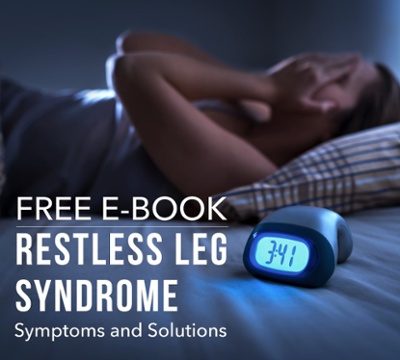Evidence Linking Restless Legs Syndrome with a Vein Condition

In my experience as a vein specialist over the past 16 years, I have treated patients daily who suffer from RLS and its effects. Over the years, I and other vein specialists have noted a correlation between restless leg syndrome and vein reflux.
The symptoms and patterns match. In the majority of my patients who suffer from RLS, and who also are found to have a vein condition, their symptoms significantly improve or disappear completely with treatment.
It’s more than a passing coincidence.
The Connection Between Restless Legs Syndrome and a Vein Condition
While research and knowledge are growing, many providers are not familiar with the relationship between vein reflux and RLS. The medical field of epidemiology looks at population statistics to see who gets a disease or symptom, which helps researchers understand its origin. The demographic patterns seen with RLS have striking similarities to the demographics seen with vein reflux, which would be expected if these two are related.
Here are 10 similarities between restless leg syndrome and vein reflux that I have documented in my practice. This evidence, along with the improvement in RLS symptoms that I see after vein treatment leads me to conclude that there is a connection between the two.
- Both RLS and vein reflux affects women about twice as often as men
- Women are more likely to develop RLS and vein reflux during pregnancy, and both peak in the third trimester and usually resolve within a month after delivery.
- Sometimes symptoms start before the age of 20, but most of the people who have symptoms bad enough to disrupt their lives are 50 and older.
- RLS and vein reflux both run in families.
- RLS and vein reflux symptoms worsen with age.
- Both vein reflux and RLS predominantly affect the lower legs. Cases of restless arm syndrome are rare; only a dozen are reported in the medical literature.
- RLS and vein reflux tend to appear or worsen in the evening and at night.
- Both RLS and vein symptoms can occur during the day, but both always occur in the evening or at night
- Both RLS and vein symptoms decrease by the morning for most patients.
- Vein symptoms and RLS both have worsening of their symptoms with rest
The medical world has classified RLS as "idiopathic," which means that the actual cause is unknown. Truly effective treatment options, too, have remained elusive for most healthcare practitioners. While the similarities I observe don’t necessarily point to a definitive cause and effect between vein reflux and RLS, they share remarkable similarities, one which medical researchers should delve into. If you think you may have a vein condition causing your RLS, the only way to get it sorted out is with a specialized vein reflux ultrasound by a vein specialist.
Ongoing Research into Restless Legs Syndrome
As we have already stated, the direct cause of RLS is still unknown. However, studies are being conducted that point toward a definitive connection between RLS and vein reflux, as well as vein treatment as an effective treatment plan.
- A study published in April 2019 found that there was enough connection and noted improvement in symptoms with RLS patients treated for a vein condition. The study concluded that “Venous ultrasound study and intervention should be considered for potential patients.”
- In another paper published by the National Library of Medicine, the conclusion was that “RLS appears to be a common overlapping clinical syndrome in patients with Chronic Vein Disorder (CVD). In this study, 174 consecutive patients and 174 matched healthy controls. They found that 36% of patients presenting to Phlebology practice had RLS symptoms, and of the 36% that had RLS symptoms - 98% had chronic venous disease. Also, of the 19% control that had RLS symptoms - 91% had chronic venous disease.
Additional research indicates a connection as well:
- Kanter Dermatological Surgery 1995 had 113 patients with the dual diagnosis of RLS and varicose veins. They were treated with sclerotherapy only, and of those treated - 98% reported rapid relief.
- Hayes et al Phlebology 2008 studied 35 patients with moderate to severe RLS with CVD. 80% of those with treatment had improvement in their symptoms. 53% had a follow-up score less than 5 indicating their symptoms had been largely alleviated. 31% had a score of 0 indicating complete relief of their symptoms.
The only way to know if you can be helped is to have a specialized vein ultrasound with a vein specialist. If you have vein diseases, such as venous insufficiency or varicose veins, causing RLS, then understand that simple outpatient vein treatments can help. The results are usually long-lasting, and one can find relief for years before needing another treatment.




